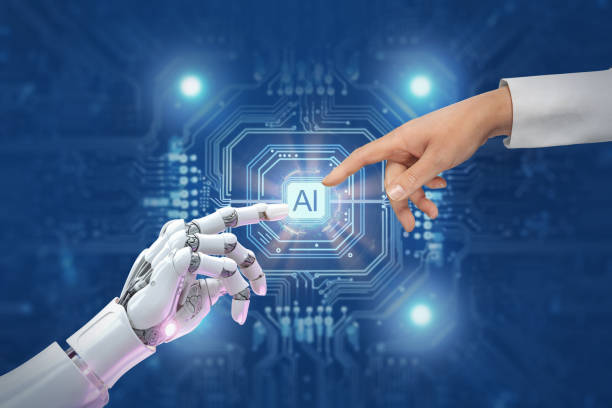In the realm of healthcare, where precision, efficiency, and timeliness are paramount, the integration of artificial intelligence (AI) has sparked a revolution. From streamlining administrative tasks to enhancing patient care and revolutionizing medical research, AI is reshaping every facet of the healthcare industry. Let’s delve into how AI is transforming healthcare industries, ushering in an era of innovation and improved outcomes.

- Enhanced Diagnosis and Treatment: AI-powered diagnostic systems are revolutionizing the way diseases are detected and treated. Machine learning algorithms can analyze vast amounts of medical data, including patient records, lab results, and imaging scans, to identify patterns and make accurate predictions. For instance, AI algorithms can assist radiologists in detecting abnormalities in X-rays, MRIs, and CT scans with greater accuracy and speed, leading to early detection of diseases such as cancer and improving patient outcomes.
- Personalized Medicine: AI is paving the way for personalized treatment plans tailored to individual patients’ genetic makeup, lifestyle factors, and medical history. By analyzing genomic data and clinical records, AI algorithms can identify genetic markers associated with specific diseases and predict how patients will respond to different treatments. This enables healthcare providers to prescribe the most effective therapies, minimize adverse reactions, and optimize patient care.
- Remote Monitoring and Telemedicine: The rise of AI-powered remote monitoring solutions and telemedicine platforms is making healthcare more accessible and convenient for patients worldwide. Wearable devices equipped with AI algorithms can continuously monitor vital signs, detect irregularities, and alert healthcare providers to potential health risks in real-time. Additionally, AI-driven virtual health assistants and chatbots are empowering patients to access medical advice, schedule appointments, and manage chronic conditions from the comfort of their homes.
- Streamlined Administrative Tasks: AI is automating and optimizing administrative tasks, freeing up healthcare professionals to focus on patient care. Natural language processing (NLP) algorithms can analyze medical documentation, transcribe notes, and extract relevant information, reducing the burden of paperwork and improving documentation accuracy. AI-powered scheduling systems can optimize appointment booking, resource allocation, and staff scheduling, leading to greater operational efficiency and cost savings for healthcare organizations.
- Drug Discovery and Development: AI is accelerating the drug discovery and development process, leading to the creation of novel therapies and treatments for a wide range of diseases. Machine learning algorithms can analyze vast datasets, including molecular structures, biological pathways, and clinical trial data, to identify potential drug candidates and predict their efficacy and safety profiles. AI-driven simulations and modeling techniques enable researchers to expedite the drug development process, reduce costs, and bring new treatments to market more rapidly.
- Predictive Analytics and Population Health Management: AI-powered predictive analytics platforms are enabling healthcare providers to identify at-risk populations, predict disease outbreaks, and allocate resources more effectively. By analyzing large-scale healthcare data, including electronic health records, claims data, and demographic information, AI algorithms can identify trends, patterns, and risk factors associated with various health conditions. This enables proactive interventions, targeted outreach efforts, and preventive care strategies to improve population health outcomes and reduce healthcare disparities.
In conclusion, the integration of AI is revolutionizing healthcare industries worldwide, driving innovation, improving patient outcomes, and transforming the way healthcare is delivered and managed. By leveraging the power of AI-driven technologies, healthcare providers can enhance diagnosis and treatment, personalize medicine, improve access to care, streamline administrative tasks, accelerate medical research, and promote population health. As AI continues to evolve and mature, its potential to revolutionize healthcare and empower lives is boundless.


